Glenn Diesen: Liberalism Is Very Destructive At Its Core To Nations - In Victory They Die
Universal empires have decline encoded into their DNA. Universalism, after a relatively brief period of prosperity, leads ultimately to atrophy and stagnation.
That's also happened to liberalism, the liberal ideology in the West and its focus on individualism, which was a vital and humanizing thing at one point, has taken all sorts of very strange courses. Living in Britain one sees the consequences of stagnation and atrophy that developed, and that Britain has not broken away from in her late empire phase.
On the topic of the universal state, or the challenges of the liberal state, when you have these idealist universalisms, like the French revolution, the Bolsheviks, the liberal democracies of modern day, these idealist internationalisms.
Once these ideals wins, in victory they die. This is a good description of what happens in liberalism because liberalism often thrives on opposition, because its an ideology of freedom, of individuals, but once it becomes the dominant ideology, and there's no alternative to balance it, everything has to be liberated.
So you have to liberate the individual from the common culture, from faith, from the nation itself. So you have liberalism divorcing itself from the nation state. Its quite a dramatic way.
So this is why many people now see liberalism entering a revolutionary stage, where we are attempting to free our self of our past. Its burden with all our sins of the past, and we're going to start living in year zero again.
Its very destructive at its core.
But we don't have these discussions because if you challenge liberalism, well - you're either for or against, everything is black and white in the discourse, so its very difficult to approach it.
The need to control discourse to protect these things. So you have to control what is said, and the information that is circulated, in order to protect all these things you have to suppress, control and censor that is the opposite of what Western societies, liberal democracies used to be about.
I think that's why you see unipolarity coming to an end. Look at how we exercise our ideals.
Look at how we exercise democray -- by toppling democracies. Liberalism today is becoming more illiberal, and even economic liberalism - now that economic concentration is no longer in the West, if you have complete free competition the Chinese are leading in key technologies like 5G, and this is not favorable to us anymore, so we are reverting to fair trade instead of free trade.
So the liberal core is going away. Controlling the narrative -- only 10 years ago it would have been unthinkable to have this amount of censorship, and cancellations as their called, and content moderation, we're inventing new language to justify why we can't have liberal economics or free speech. Its quite a strange time to live in. We have human rights organizations financed by the state looking to censor people who criticize the glory of NATO. Its a very absurd time to be alive. Its why I see the decline of this liberal hegemony.
We are at the end, what we are talking about is unsustainable, that's absolutely clear to me from reading your book. Whatever happens in the war in Ukraine, its already gone horribly gone wrong, but the unipolar system cannot be recreated. We have a choice, either we escalate in disastrous attempts to try and hold things together or we recognize this fact, and Europe in particular makes some important decisions that its has been avoiding lately, or we risk a great tragedy.
So far it appears our only goals is to revive the 1990's, which is already lost, best case is we are able to weaken Russia.
Unipolarity was always unsustainable, so I wish there was a broader discourse than just who is supporting us and who is our enemies.
Excerpts, The Duran, March 3, 2024, The Ukraine War & the Eurasian World Order – by Glenn Diesen
----------------------------------------
Posted for educative purposes under THE FAIR USE NOTICE: These Videos may contain copyrighted (© )
material the use of which has not always been specifically authorized by the copyright owner. Such material is made available to advance understanding of ecological, political, human rights, economic, democracy, scientific, moral, ethical, and social justice issues, etc. It is believed that this constitutes a 'fair use' of any such copyrighted material as provided for in section 107 of the US Copyright Law. In accordance with Title 17 U.S.C. Section 107, this material is distributed without profit to those who have expressed a prior general interest in receiving similar information for research and educational purposes.
-
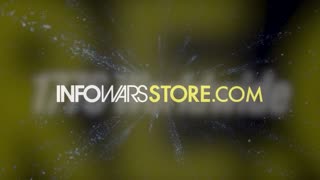 6:22
6:22
InOneEar
7 months agoThree World Wars to Usher in a One World Religion l Greg Reese l Infowars
1961 -
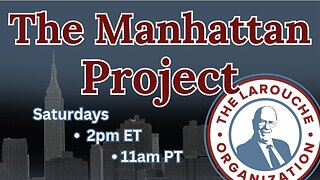 2:07:10
2:07:10
laroucheorganization
7 months agoWinning the War Against the War Party
435 -
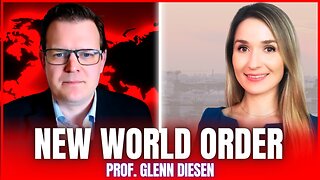 41:32
41:32
LenaPetrova
22 days ago🚨END OF US HEGEMONY: Multipolar World Order, Economic Decline & Failed Sanctions| Prof. Glenn Diesen
3.06K34 -
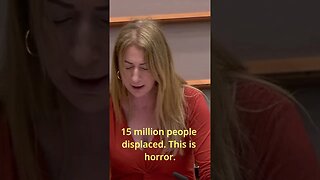 0:59
0:59
NeutralityStudies
11 months agoClare Daly Speech | No Body Wins In War EXCEPT The Military Industrial Complex | Neutrality Studies
50 -
 44:15
44:15
NeutralityStudies
9 months ago $0.01 earnedIts Not Just A Proxy War Its Worse | Dr Friedrich Glasl | Neutrality Studies
330 -
 52:12
52:12
The Memory Hole
1 month ago"The genocide of Pol Pot was begun by Richard Nixon and Henry Kissinger" (1979)
7382 -
 6:22
6:22
RAVries
7 months agoThree World Wars to Usher in a One World Religion · Oct 11, 2023 Greg Reese · The Illuminati Plan for 3 World Wars
1.27K1 -
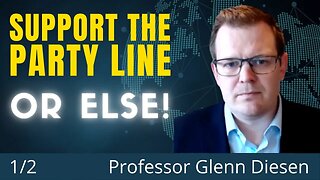 21:36
21:36
NeutralityStudies
1 year agoWar Propaganda Ignores All Voices Of Reason | Professor Glenn Diesen (1/2)
20 -
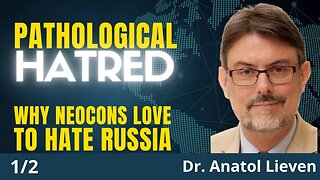 18:30
18:30
NeutralityStudies
8 months ago $0.02 earnedNeocon Hate For Russia Makes A European Settlement With Moscow Impossible Dr. Anatol Lieven (1/2)
77 -
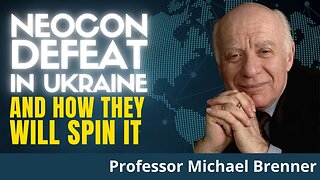 1:09:17
1:09:17
NeutralityStudies
7 months ago $0.01 earnedNeocons Have Lost Ukraine And They Will Continue Anyhow | Dr. Michael Brenner
150